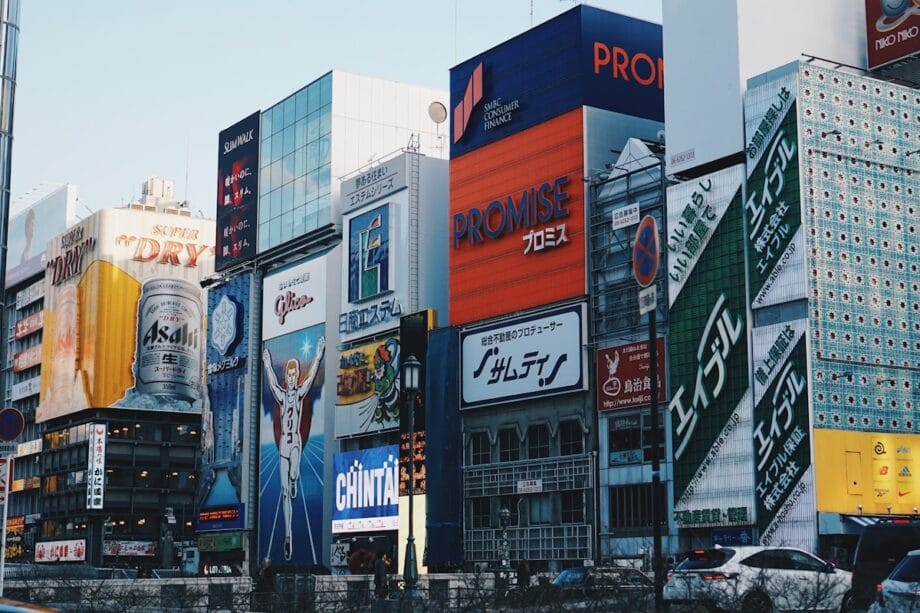Have you ever found yourself in a marketing discussion where someone exclaims, “Let’s capitalize on our brand narrative to enhance engagement through genuine synergy”? If so, you have encountered the enigmatic realm of advertising jargon.
These phrases are not mere words; they are incantations, artfully designed to transform mundane concepts into extraordinary revelations. Advertising agencies have honed the craft of fabricating glistening yet vacuous buzzwords that compel us to affirm them, even when their meanings elude us.
Behind each of these expressions lies a resourceful copywriter, an overwhelmed creative director, and a client eager to appear more innovative than rivals. Thus, let us demystify and chuckle at ten marketing buzzwords ingeniously concocted by ad agencies—and embraced by the masses.
1. “Brand Storytelling”
In days gone by, companies merely marketed products. Today, they “narrate stories.” This concept sounds profound and emotionally resonant until one realizes it often translates to “we produced a commercial with soft lighting and a piano score.”
Advertising firms sold the notion that your household cleaner or snack item deserves a compelling narrative arc, and their strategy proved effective. Everyone craves the sentiment that their product possesses a soul, yet many of these so-called “brand stories” are simply brief fairy tales crafted to evoke tears just before you click “checkout.”
2. “Authenticity”
If every brand claims to be “authentic,” what does the term signify anymore? Advertising agencies have deemed “authenticity” the apex of marketing, yet paradoxically, they are the architects of its construction.
To instruct someone to “be authentic” in a strategic discussion is akin to choreographing spontaneity. Nevertheless, each campaign presentation includes it alongside “relatable content” and “emotional resonance.” The consequence? Impeccably curated “realness” that resembles a stock image of individuals joyfully sharing a salad.
3. “Thought Leadership”
This phrase, which initially conveys a compliment, generally insinuates “frequent contributions on LinkedIn.” Advertising agencies cherish it, as it flatters clients into believing they are forward-thinkers rather than mere consistent posters.
The term “thought leadership” transforms opinions into revolutions and blog entries into manifestos. In truth, most so-called thought leaders articulate sentiments echoed by the majority—just with superior hashtags. It’s marketing self-affirmation masquerading as wisdom.
4. “Customer Journey”
Do you recall when shopping was simply… shopping? Advertising agencies deemed that too straightforward. Nowadays, every purchase is a “journey.” Apparently, acquiring a blender encompasses numerous “touchpoints,” “emotional stimuli,” and “conversion pathways.”
This theatricality belies the reality that it often culminates in free shipping and a confirmation message. Nonetheless, the concept ingeniously frames every transaction as a grand adventure, convincing clients they are orchestrating human destiny, rather than merely executing an ad campaign.
5. “Disruption”
No term has suffered more from overuse than “disruption.” Originally reserved for significant innovation, it is now applied to anything remotely novel. A swiftly delivering app? Disruptive. A cereal brand altering its logo? Also disruptive.
Advertising agencies adore this term, as it imbues clients with the illusion of rebellion, even when they’re simply rebranding bottled water. “Disruption” has morphed into the verbal leather jacket of marketing—it maintains an edgy allure, despite its widespread adoption.
6. “Growth Hacking”
What emerges when you merge tech startup bravado with marketing exigency? Growth hacking. Advertising agencies devised this phrase to recast traditional marketing strategies as Silicon Valley sorcery.
It suggests there exists a secret formula, a clever shortcut, or a “hack” for soaring success—when, in reality, it denotes creative A/B testing adorned with a more fashionable nomenclature. Yet, invoking “growth hacking” in a meeting will elicit nods as if a new reality has been unveiled.
7. “Engagement”
Engagement once implied a genuine interest in dialogue. Now, it represents a metric, a key performance indicator, a numerical figure determining whether your meme is heralded as art or dismissed as folly.
Advertising agencies have artfully reduced the human act of caring to a formula lodged in a spreadsheet. The most troubling aspect? They have implanted an obsession with this metric within us. We now quantify “connection” through likes, clicks, and shares, almost as if a heart emoji equates to genuine influence.
8. “Omnichannel Experience”
This term possesses a futuristic ring, does it not? “Omnichannel” was conceived to articulate a behavior that customers naturally exhibit—shopping online, in physical stores, and via mobile devices. Yet agencies could not resist transforming it into a buzzword reminiscent of a science fiction narrative.
Suddenly, brands weren’t merely selling; they were curating “seamless omnichannel experiences.” Translation: “We have a website and a social media account.” It is a phrase that feels profound until one realizes it denotes simply standard business practices.
9. “Synergy”
Ah, synergy—the venerable progenitor of marketing buzz terms. While it lacks a concrete definition, it sounds sufficiently significant to inspire assent. Agencies have been integrating this term into presentations since the advent of PowerPoint.
Allegedly, synergy manifests when two concepts converge to produce a result greater than their individual contributions. In practical terms, it typically denotes “we are unsure how these elements interconnect, yet they are both appealing.” Yet, astonishingly, every campaign aspires to possess synergy to achieve completion.
10. “Purpose-Driven”
If “authentic” was the lexical staple of the 2010s, then “purpose-driven” assumes that mantle in the 2020s. Nowadays, every brand professes to operate with purpose—be it environmental advocacy, community upliftment, or “redesigning self-care.”
Advertising agencies identified the cultural shift towards meaningful engagement and commodified it before you could utter “mission statement.” Suddenly, purchasing sneakers becomes an act of activism, and munching on chips signifies self-expression.
It’s not that brands lack values; it’s simply that when every advertisement concludes with “we care,” the resonance of such phrases diminishes.
The Genius (and Absurdity) Behind the Jargon
Before we dismiss these terms entirely, it is important to recognize that advertising agencies excel in their craft. These buzzwords endure for a reason.
They are catchy, easily recitable, and engender a communal feeling among clients, making them feel part of something grander than mere transactions.
Each phrase effectively compresses intricate concepts into succinct, emotive soundbites—convenient for marketing, memorable, and impossible to dismiss. The issue lies not in the words themselves, but in their frequent deployment devoid of substance.
The Metamorphosis of Vapid Expressions
Buzzwords metamorphose in a fashion akin to fashion trends. What once appeared innovative swiftly descends into cliché, only to be supplanted by the next alluring phrase. A decade passed, and the preoccupation was with “viral content.”
Then it transitioned to “storytelling.” Presently, the lexicon has shifted to “community-driven engagement.”
This cycle is perpetual as agencies flourish on continual reinvention—this serves as their very business model. Every novel buzzword initially feels invigorating until it reverberates throughout every conference room, hence losing its zest.
Why We Persist in Embracing Them
The reality is, we desire to believe in these terms. “Authenticity,” “purpose,” “journey”—they infuse commerce with a sense of humanity, significance, even nobility.
Advertising agencies capitalize on this aspiration and enshroud it in sophisticated language that seems uplifting. It is part performance, part psychology, and part artistry.
While the words may be fabricated, the sentiments they evoke remain genuine. We invest in them, as they render marketing a pursuit transcending mere profit—it embodies connection, creativity, and advancement.
Buzzwords as Modern-Day Fables

Though ad agencies have conjured these expressions, we collectively bear the responsibility of perpetuating their existence. They constitute the shared vernacular of aspiration and hope, even as they occasionally veer toward the absurd.
The challenge lies in discerning when to deploy these terms—and when to challenge their validity. Ultimately, effective marketing transcends jargon; it embraces clarity, transparency, and the fortitude to express authentic thoughts.
Do you possess a favorite (or most despised) buzzword that incites your exasperation? We invite you to share your reflections, anecdotes, or most ludicrous encounters with marketing language in the comments below.
Source link: Inkl.com.






